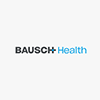
BHC
Bausch Health ($BHC) 'Hidden Gem' Revaluation Begins with Paulson's $35.87M Massive Purchase
06/17/2025 20:51
Sentiment
Serial Buy
Summary
- Legendary hedge fund manager John Paulson executed massive purchases totaling $35.87 million for 6.35 million shares between June 10-13
- Bausch + Lomb divestiture possibility continues with TPG and Blackstone reportedly considering bids up to $11.5 billion
- Q1 revenue of $2.26 billion grew 4.9% year-over-year, but adjusted EPS of $0.60 missed analyst expectations of $0.79
POSITIVE
- Paulson's massive stake building demonstrates strong conviction in company value, with his successful value investing track record serving as a positive signal
- Potential Bausch + Lomb divestiture offers significant cash generation and debt reduction opportunities for improved financial structure
- Solid cash generation with $1.56 billion annual free cash flow and consistent growth in core ophthalmology business segment
NEGATIVE
- Q1 adjusted EPS significantly missed analyst expectations, with concerning revenue declines in generics (-38.8%) and dentistry (-19%) segments
- High debt levels create financial burden while key product Xifaxan faces generic competition starting 2028, posing long-term profitability risks
- Significant stock volatility with 25.87% year-to-date decline indicates need for market confidence restoration
Expert
From a healthcare sector perspective, Bausch Health represents a diversified specialty pharmaceutical company, with Paulson's significant investment signaling an asset separation value realization strategy. Successful Bausch + Lomb divestiture could enable transformation into a pure-play pharmaceutical company, potentially commanding valuation premiums.
Previous Closing Price
$6.93
+0.02(0.29%)
Average Insider Trading Data Over the Past Year
$6.13
Purchase Average Price
$7.66
Sale Average Price
$62.84M
Purchase Amount
$121.88K
Sale Amount
Transaction related to News
Trading Date | Filing Date | Insider | Title | Type | Avg Price | Trans Value |
|---|---|---|---|---|---|---|
12/16/2025 | 12/16/2025 | Sale | $ |
Bausch Health Companies Inc ($BHC) has captured investors' attention following legendary hedge fund manager John Paulson's massive stake-building activity. Between June 10-13, Paulson purchased a total of 6.35 million shares worth approximately $35.87 million, signaling strong conviction in the company's prospects. Bausch Health is a Canada-based specialty pharmaceutical and medical device company operating across gastroenterology, neurology, dermatology, and ophthalmology. Its subsidiary Bausch + Lomb stands as a global leader in contact lenses and surgical ophthalmic products. The company, formerly known as Valeant Pharmaceuticals until 2018, currently trades as a small-cap stock with a market capitalization of $1.85 billion. Paulson's investment carries significant weight for several reasons. The scale of his purchase, averaging $5.49 per share for 6.35 million shares, far exceeds typical director-level stake building. More importantly, the timing suggests strong conviction about the company's intrinsic value, as he accumulated shares even after the stock had partially recovered from April lows of $4.32. Paulson gained fame for his prescient bet against subprime mortgages in 2007, generating $15 billion in profits. His firm Paulson & Co. specializes in distressed investing and value plays in restructuring situations. Given his track record of identifying undervalued companies with solid fundamentals facing temporary challenges, his substantial investment in Bausch Health suggests he believes the current share price significantly undervalues the company. The financial metrics support Paulson's assessment. Q1 2025 revenue reached $2.26 billion, up 4.9% year-over-year, with core Bausch + Lomb segment showing consistent growth. Vision care revenues increased 5.6% while surgical products grew 4.7%. The company generates robust annual free cash flow of $1.56 billion, demonstrating solid cash generation capabilities. However, challenges remain evident. Q1 adjusted earnings per share of $0.60 missed analyst expectations of $0.79. Generic pharmaceuticals revenue declined 38.8% while dentistry segment fell 19%, indicating struggles in certain business areas. High debt levels have also kept the market cap significantly below enterprise value. Investors should monitor the potential Bausch + Lomb divestiture closely. Private equity firms TPG and Blackstone have reportedly considered bids up to $11.5 billion. If successful, the sale would provide substantial cash for debt reduction and allow management to focus on core operations. The stock chart reveals telling patterns. When Bausch + Lomb sale reports first emerged in September 2024, shares surged 29% from $6.32 to $8.18. After declining to $4.32 in April 2025 due to earnings disappointments and market volatility, Paulson's purchases helped drive recovery to $5.91, demonstrating how major investor interest influences share price. Positive catalysts to watch include concrete progress on Bausch + Lomb divestiture, quarterly earnings improvements especially in the ophthalmology segment, and debt reduction initiatives. The company recently completed $7.9 billion in refinancing, and further balance sheet optimization could enhance investment appeal. Risk factors include continued revenue declines in generics and dentistry segments, regulatory approval delays, and patent expirations. Notably, key product Xifaxan faces generic competition starting in 2028, raising long-term profitability concerns. In an optimistic scenario where Bausch + Lomb sale succeeds and debt burden decreases substantially, shares could reach $10+. The base case suggests gradual recovery to $7-8 levels. However, if divestiture fails or earnings deteriorate further, shares could retest the $4 range. Paulson's massive investment represents a significant positive signal. Given his investment philosophy and track record, this appears to be a calculated value play rather than speculation. His board position provides direct influence over company strategy, which could prove beneficial. However, pharmaceutical industry uncertainties and the company's complex business structure suggest near-term volatility remains likely.